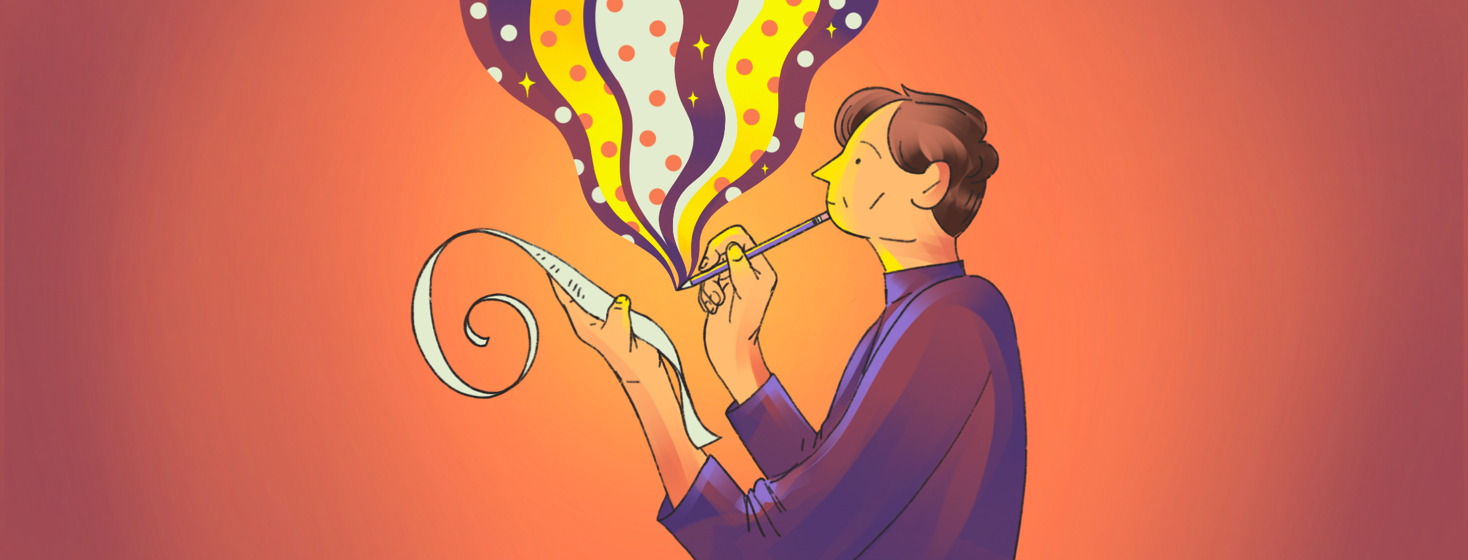New Year’s Resolutions and Rare Diseases
I'm not a fan of New Year's resolutions.
I'm sure many of us have seen or done this before – we make big goals that are not necessarily attainable, and the instant there's a setback, we give up.
The problem with SMART goals
As a fitness instructor, I was taught to make SMART goals – goals that are specific, measurable, achievable, relevant, and time-bound. However, I tend to disagree with this structure to some extent because not every goal is measurable or has an end date, and the unpredictability of life can certainly throw a wrench in things, especially for those of us with chronic illnesses or rare diseases.
Fatigue, last-minute specialist appointments, spending extra time navigating symptoms and insurance hurdles – these can all make sticking with a SMART goal even more difficult.
Setting intentions instead
Instead of making goals, I like to set intentions any time of the year. And as long as I'm taking steps in the right direction, then, hey, steps forward are steps forward.
Here are 3 examples of intentions I've set in the past:
This or That
I relate more to...
1. Stop apologizing
I recall being invited to a theatrical retreat. At the time, I wasn't diagnosed with a rare disease, but I did have celiac disease, a serious autoimmune condition that requires very specific dietary changes. The hosts just didn't quite seem to understand when I spoke with them. They didn't want me in the kitchen prepping my own food because they wanted me to focus on my creativity.
That all sounds well and good, but I'll be much more creative if I'm not sick for the entire week. I wasn't as good at advocating for myself then, so I tiptoed around the subject, periodically peeking into the kitchen to see if I spotted any red flags that could make me sick.
Sure enough, I wasn't able to eat the food that was prepared all week. And at each meal, I had to explain why I was munching on a protein bar and cheese. I found myself saying a lot, "Oh, I'm sorry, I can't eat that dish because XYZ."
Finally, one of my friends said, "Jessica, I need you to stop apologizing. This is just what you need for your health. It's not something that you should apologize for." And that was the last time I apologized when expressing my medical needs.
2. Do more things that you enjoy
In the worst phase of my rare disease, I was in a dark place, surrounded by sadness. I felt like I had lost so much of myself.
So I decided to make a commitment to go back to the things I loved – I would see more theatre, learn new songs, and take a dance class! And each outing felt like it brought me a little closer to myself.
3. When things get hard, keep taking steps forward
I know, easier said than done. I'm a singer. I went through 5 surgeries in less than 3 years to treat Graves' disease and thyroid eye disease. One of these surgeries was very close to the nerves that control vocal function, and others were in the nasal/orbital area.
After each surgery, it felt like I'd have a period of both physical and vocal recovery, get my voice back into shape, and then do it all over again with the next surgery. It was so frustrating.
After one surgery, I felt like I hit a wall. So many things were different and difficult, and in a teary conversation with my voice teacher, I decided it was time to change tactics. I rented a vocal studio to practice a few times a week and did my best not to judge myself. I tried new things and made weird sounds to figure out where my voice was then compared to what it was before.
Some days were good; some days were difficult. But I was there, and I was working on it. It was still a step forward, even if it didn't sound perfect. There were no measurable or time-bound goals here, just continuous work and continuous dedication. And it definitely paid off. The time and work I put in made all the difference in my singing.
Do you make resolutions or set intentions?
I think it's important to remember that we're all doing the best we can, and every day is different; progress is not necessarily a straight line.
Do you make resolutions or set intentions in relation to your rare disease? Please feel free to share yours and join the conversation by leaving a comment below.

Join the conversation